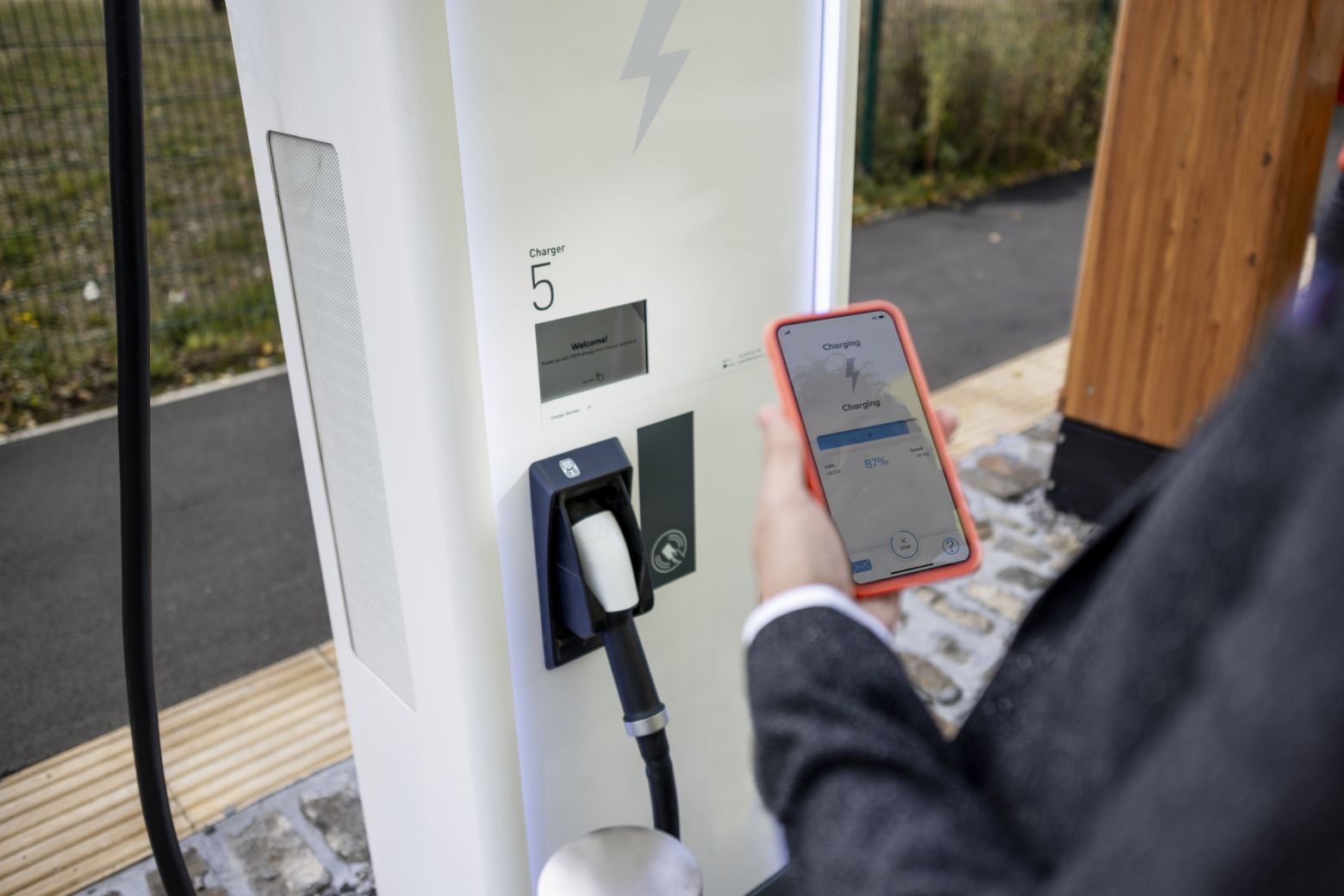
Download our thought piece published by the Institute of Residential Property Management
Our Solutions

Consultancy & Project Management
Initial survey through to full project management of your end to end, EV charging solution

Legal Advice
Our legal service will initially review leases and ensure that your EV system complies with the lease provisions

Infrastructure
We supply all software and hardware components to enable integration and create a complete solution

Billing Systems
Our flexible billing systems provide individual leaseholders with their bills without the need for meters.

Support & Service
We provide ongoing support and service long after your project has gone live including remote troubleshooting

What we do
EV Solutions Group was created to overcome the multitude of obstacles associated with providing Electric Vehicle charging capabilities to leasehold developments including individual flat owners. We design and deliver a complete, end-to-end solution, then fully project manage the process to ensure your total solution is delivered within agreed timescales and budgets. We are an OZEV registered installer (Installer number EVHS 10866) so can also claim all available grants.
Whilst property managers may be experienced in dealing with lease restrictions and the aspects of running a development, dealing with the numerous parties involved in providing a bespoke EV charging solution, is considerably more complex. EV Solutions Group is experienced in, not only managing the entire process but working with the relevant specialists such as Distribution Network Operator’s, electrical design engineers, government agencies and the numerous contractors covering all area’s associated with designing and delivering your bespoke solution – we will even oversee the grant application process to ensure you receive the maximum allowance.
For Leaseholders
The most common question we get from individual flat owners is
“How do I get an electric vehicle charger installed at my flat”
EV Solutions Group will work with all relevant parties to ensure any individual electric vehicle chargers will be integrated into a site-wide scheme at the appropriate time. Too often we see flat or apartment owners having to pay twice, once for their own individual installation and again when the installation has to be replaced and incorporated into a site-wide scheme.
Quite simply, we enable EV charging infrastructure from single users through to site wide schemes ensuring leaseholders stay compliant with their leases.
For Residential Leasehold Property Managers
From the moment a client approaches a property manager with a request to install an electric vehicle charger at their flat or apartment, or an RMC/freeholder requires a site-wide electric vehicle charging scheme installed for their flats or apartments, then we will help provide solutions to these complex requests
We can assist with installations for individual flat owners through to site-wide schemes ensuring that the transition from fulfilling individual leaseholder requests to an eventual site-wide scheme is as cost effective and seamless as possible.
In both scenarios and covering every eventuality, we will assess the site documentation (leases, Memorandum and Articles of association, and RMC’s), power infrastructure, logistics as well as liaising with the relevant specialists such as Distribution Network Operator’s, electrical design engineers, government agencies and the numerous contractors covering all area’s associated with designing and delivering your bespoke solution.
Summary of our processes


Our Mission
Many companies are offering EV Chargers to leaseholders, managing agents and freeholders which is usually restricted to selling a particular brand of charging unit as opposed to offering an end-to-end solution. Few, if any, consider the important work required before a charging unit can even be considered?
Most leases were written and issued years before electric vehicles became a reality. Building infrastructure was never designed with consideration of the evolution in vehicle technology. Transformers, cabling, power output, how to balance the energy loads required per car, how to bill individuals for their own usage and so on, the list of issues to be addressed is vast and will be considered further in our SOLUTIONS section
At first glance, it would appear to be fairly straightforward to give a number of leaseholders in a confined development, full access to EV Chargers however, its anything but straightforward…
Underground carparks, outside communal carparks, and a combination of both in the same development all have their own problems, apart from the infrastructure considerations mentioned above, what kind of charger units do you use? where do you place them? How do you get a load-balanced power-source to them?
EV Solutions Group have built a business model to address these problems bringing together and working with specialist partners in order to offer a bespoke, end-to end modular solution, addressing all of the above issues
EV Solutions Group will be the only business partner you need to solve the many challenges you will face in your property portfolios.


Frequently Asked Questions
From 1st April 2022, grants will be available on the basis of £350 per charger and £500 per charger as a contribution towards infrastructure costs. EV Solutions Group can apply for grants on behalf of clients.
We can. EV Solutions Group sees individual leaseholders as the starting point of any EV charging infrastructure within a leasehold environment. Our project plans start with single leaseholders and can take a site through the whole evolution to a site-wide scheme.
We anticipate that the managing agent/property manager will do this with support from EV solutions with specification documents, quotations and answers to leaseholder or landlord queries.
In some cases, this may be possible if the car parking space is close to the leaseholder’s electricity meter AND the local transformer can handle the increased load. In most leasehold developments, there is usually a considerable distance between the leaseholder’s electricity meter and the car parking space with cost and safety issues rendering this approach impractical.

